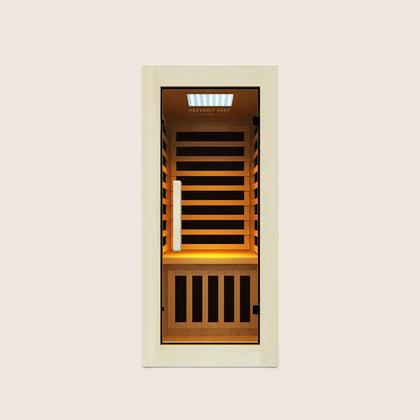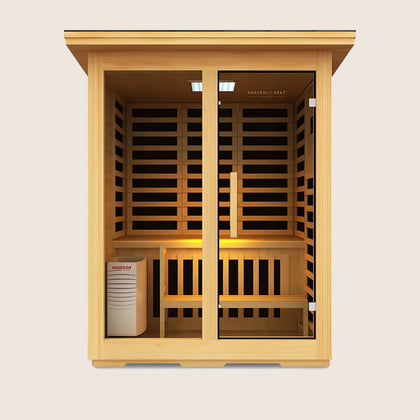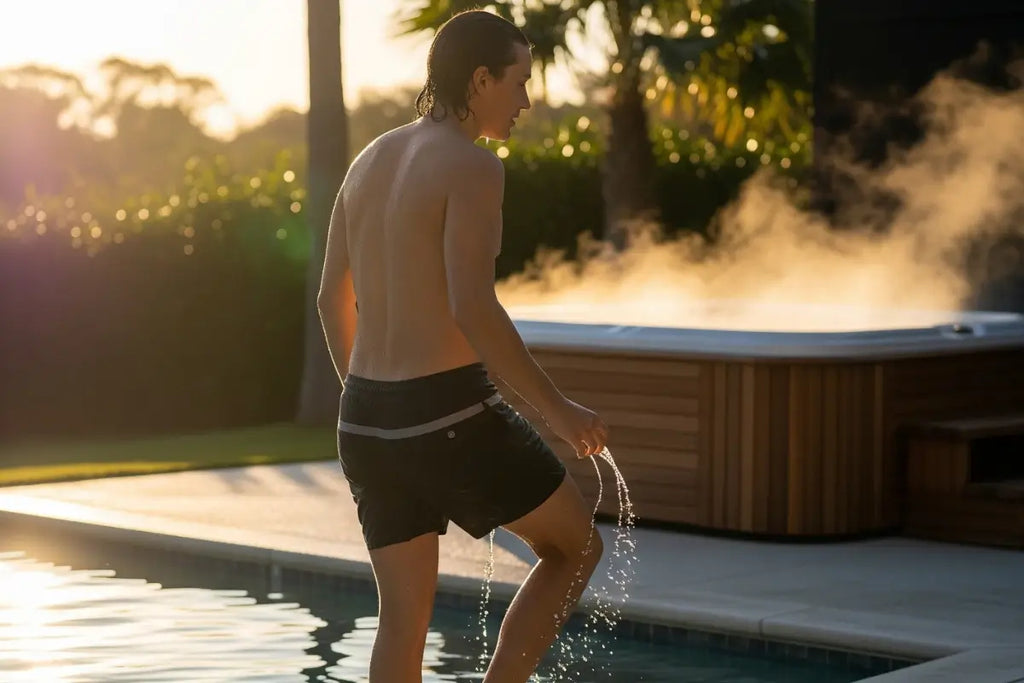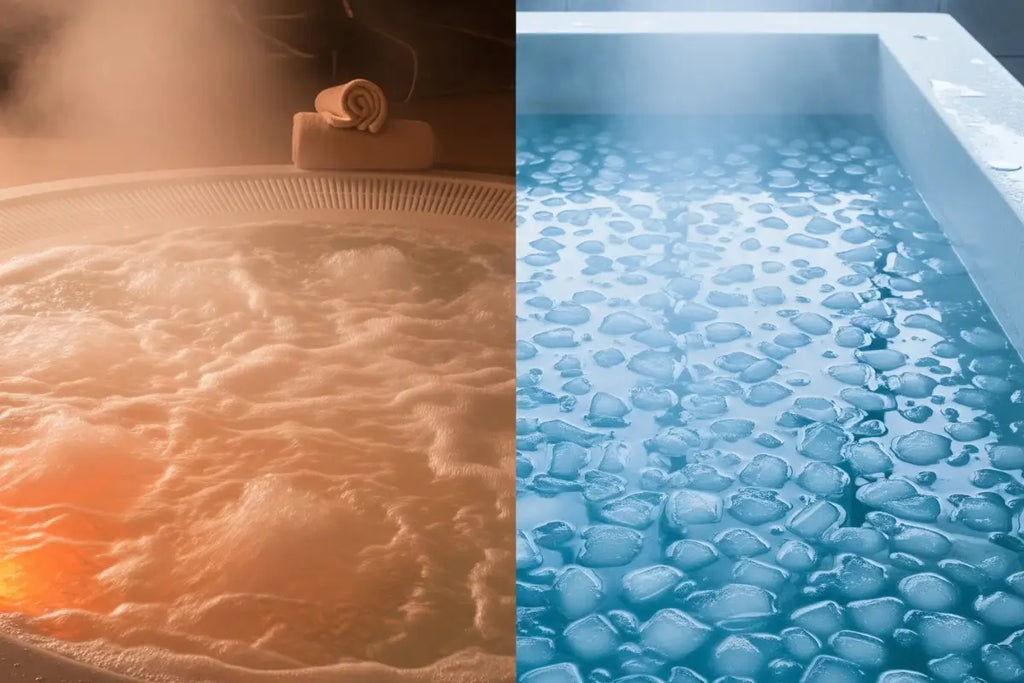7 Risks of Using a Hot Tub Immediately After Marathon

Running a marathon pushes your body to the limit, leaving muscles sore, energy drained, and your heart working overtime.
Jumping into a hot tub might feel tempting, but it isn’t always safe. From dehydration to muscle inflammation, hot water can make recovery harder. Read on to discover seven risks every runner should know before soaking.
Key Takeaways
-
Wait Before Soaking: Using a hot tub right after a marathon can worsen muscle inflammation and slow recovery.
-
Stay Hydrated First: Entering a hot tub while dehydrated increases risks of dizziness, fainting, and heat stress.
-
Protect Your Heart: Hot water adds strain to your cardiovascular system when your body is already fatigued.
-
Guard Against Skin Issues: Marathon-weakened skin is more prone to rashes, irritation, and infections in hot tubs.
-
Time It Right: Waiting at least 24 hours allows your body to repair before enjoying the relaxation benefits of a soak.
Is it safe to use a hot tub right after a marathon?
Using a hot tub immediately after a marathon isn’t recommended. Heat can worsen muscle inflammation, delay recovery, and strain a fatigued heart, especially if you’re dehydrated.
It may also irritate weakened skin or aggravate existing injuries. Waiting 24 hours, rehydrating, and considering contrast therapy ensures safer recovery while still allowing hot tubs’ relaxation, mood, and sleep benefits.
7 Risks of Using a Hot Tub Immediately Post-Marathon
Increased Muscle Inflammation
Using a hot tub immediately after a marathon can increase muscle inflammation. Hot water boosts blood flow, which can worsen soreness and irritate microtears in muscles.
Instead of reducing pain, heat right after a long run often increases swelling and slows recovery. Soaking too soon can leave muscles stiffer and more sensitive.
Waiting a day or skipping the hot tub lets your body repair safely and reduces the risk of prolonged inflammation.

Dehydration Risks
After a marathon, your body loses a lot of water and electrolytes, and using a hot tub immediately can make dehydration worse.
The hot water increases sweat loss and can hide signs like dizziness or fatigue. Your heart works harder, and blood pressure can rise when you are already dehydrated.
Staying too long in the tub can push your body to dangerous levels, even causing heat stroke. Rehydrating before using a hot tub helps protect your heart, maintain fluid balance, and supports safer recovery after long-distance running.

Dizziness and Fainting
After a marathon, your body is already fatigued and dehydrated. Entering a hot tub can worsen dizziness because the heat dilates blood vessels, lowering blood pressure.
Electrolyte imbalances from sweating also make you feel lightheaded. High body temperature adds to the risk of fainting, while dehydration slows blood flow to the brain.
If you start feeling faint, leave the water slowly, sit down, and hydrate with water or a sports drink.
Listening to your body is key, pushing yourself too soon into a hot tub can lead to serious fainting episodes.
Delayed Recovery
A hot tub right after a marathon can slow recovery instead of helping it. Heat makes small muscle tears heal slower and can increase inflammation instead of reducing it.
Hot water also delays the removal of waste from muscles and slows glycogen replenishment, leaving you with less energy.
Many runners expect relief, but heat can make delayed onset muscle soreness last longer. Instead of speeding things up, a soak often stretches recovery time compared to simple rest. This means more stiffness, more fatigue, and a longer wait before you feel ready to train again.
Skin Irritation and Rashes
After a marathon, hot tubs can irritate skin because heat opens pores and lets sweat, chemicals, and bacteria cause rashes.
Marathoners face higher risk since long runs weaken skin and create friction points. Hot water also worsens conditions like eczema or dryness.
A common issue is hot tub folliculitis, a bacterial infection that leads to red, itchy bumps. Chafed areas from running sting and inflame faster in hot water.
If irritation spreads, looks infected, or doesn’t improve, runners should see a doctor. Quick attention prevents small rashes from turning into painful problems after post-race recovery.
Cardiovascular Strain
Soaking in a hot tub raises your heart rate as your body works to cool itself. After a marathon, your cardiovascular system is already under stress, and hot water can push blood pressure higher.
Dehydration makes your heart work harder, and the combination can trigger arrhythmias or dizziness.
In some cases, this extra strain increases the risk of heart complications. Even healthy runners should be cautious.
To protect your heart, allow your pulse to return to normal and hydrate first before any hot soak. Sudden immersion can put unnecessary pressure on your heart.
Aggravation of Existing Injuries
Hot tubs feel soothing, but they can worsen existing injuries. A sprained ankle or tendon inflammation can flare up in hot water.
The heat increases blood flow, which sometimes makes swelling and minor tears more pronounced.
Overworked joints like knees may become more painful after a hot soak. Plantar fasciitis and other foot injuries also respond poorly to immediate heat.
If your body is sore from running, soaking too soon may delay healing instead of helping it. Rest, ice, and gentle stretching are safer until your muscles and joints cool down.
Ideal Timing for Hot Tub Use After a Marathon
The ideal time to use a hot tub after a marathon is 48–72 hours post-race, once the body has cooled, rehydrated, and begun initial recovery.
Cold therapy is recommended immediately after the race, while hot tubs later promote circulation, relax muscles, and support recovery safely.
Psychological and Relaxation Benefits of Hot Tub Use
Melt Away Stress Instantly
Soaking in a hot tub melts stress almost instantly. The warm water opens up your blood vessels and boosts circulation, sending more oxygen and nutrients to your body while helping flush out toxins.
Your muscles relax, and your mind feels calmer. According to Hindawi, people who spent just 10 minutes in warm water reported less stress, better mood, and a stronger sense of overall well-being.
Ease Anxiety and Calm Your Mind
A hot tub helps reduce anxiety by relaxing both body and mind through soothing heat and gentle water pressure.
Warm water slows breathing and eases tense thoughts, creating a calm state. During this process, the body lowers stress hormones like cortisol, which brings a sense of relief.
The steady heat also improves sleep quality, giving anxious people the rest they need. Beyond physical comfort, hot tub therapy sharpens mental clarity and lifts mood.
It also activates the body’s natural relaxation response, making it an effective way to ease anxiety and restore balance after stressful moments.
Sleep Better After Hot Tub Soaks
Soaking in a hot tub after a long day can do wonders for your sleep. The warm water raises your body temperature, and when you step out, your body cools down, signaling it’s time to rest.
One study showed that evening spa baths helped people fall asleep faster and quiet racing thoughts before bed.
Another research with over 2,000 adults found that hot-tub baths improved sleep efficiency, reduced nighttime wake-ups, and lowered the chance of poor sleep. It’s a simple way to sleep better and feel refreshed.
Boost Your Mood Naturally
Soaking in a hot tub lifts your mood in a natural way because the warm water relaxes your muscles, improves blood flow, and lowers stress hormones.
As your body warms up, your blood vessels open wider, sending more oxygen through your body and helping your mind feel calm and refreshed.
One study showed that hot water immersion lowered stress, eased anxiety, and improved heart health.
Another study found that people who took warm baths felt less tired, less stressed, and reported better moods than those who only showered.
Clear Mental Fog and Improve Focus
Sitting in a hot tub melts away stress, boosts blood flow, and quiets racing thoughts, which makes it easier to shake off mental fog and focus better.
The warm water relaxes your body, and that calm often carries over to your mind. According to a study in Heliyon, people who soaked in hot spas regularly felt happier and more satisfied, showing that hot tub time can lift mood and sharpen mental clarity.
Strengthen Social Bonds and Emotional Health
Spending time in a hot tub offers more than just relaxation, it strengthens social bonds and boosts emotional health.
Families can connect more deeply as shared hot tub moments spark laughter and conversation, creating lasting memories.
Friends enjoy the chance to unwind together, strengthening trust and friendship. Couples find that hot tubs encourage open communication, making it easier to share feelings.
The warm water melts away stress, leaving everyone calmer and more present. In group settings, hot tubs reduce social anxiety, helping people feel comfortable and connected while forming joyful experiences they’ll remember long after.
FAQ
Should I rehydrate before entering a hot tub after running?
Yes, you should rehydrate before entering a hot tub after running because both activities cause fluid loss.
Drink at least 16 ounces of water 30 minutes prior, keep water nearby during your soak, and listen to your body to prevent dehydration, overheating, and ensure safe recovery.
Is contrast therapy better than just a hot tub for recovery?
Contrast therapy outperforms a hot tub alone by alternating hot and cold exposure, enhancing circulation, reducing inflammation, and accelerating muscle recovery.
Cold constricts vessels to limit swelling, heat flushes waste, and the pumping action delivers oxygen and nutrients, decreasing soreness, tension, and improving range of motion.






























